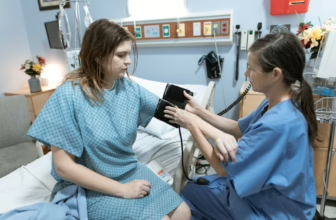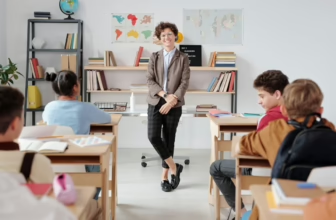Physical limitations in chronic illness and disability are often exacerbated by profound psychological barriers, including fear-avoidance, grief and body image distress. The Licensed Clinical Social Worker (LCSW), using the Biopsychosocial Model, provides the essential clinical intervention to resolve these mental hurdles, transforming a client's ability to engage with rehabilitation and maintain long-term physical health.
For individuals managing disability or chronic illness, the journey toward maintaining physical health and maximizing exercise/fitness potential is rarely a linear path of mechanical rehabilitation. It is, fundamentally, a complex psychological process defined by emotional loss, fear of failure and systemic barriers. The Licensed Clinical Social Worker (LCSW), who has special training in advanced clinical practice, fills this gap by understanding that a person's physical function is closely linked to their mental state and social surroundings. The LCSW's role involves implementing the Biopsychosocial Model (BPS) to emphasize the mental and emotional barriers to physical exercise and adherence alongside clinical medical care.
The Biopsychosocial Model and Adaptive Function
The BPS model (central to advanced clinical training) dictates that physical decline is never purely a biological event. Instead, it is the result of intricate feedback loops among three dimensions:
- Biological: The direct impact of the chronic illness or injury (pain, fatigue, limited mobility).
- Psychological: The individual's cognitive and emotional response (depression, grief and loss, body image distress, anxiety).
- Social: Environmental factors (disability access barriers, lack of insurance coverage, stigma or inadequate/insufficient support).
For example, persistent chronic pain (Biological) often leads to fear-avoidance behaviors (Psychological), which are exacerbated by inaccessible public transportation preventing participation in a fitness program (Social). The LCSW, informed by their advanced clinical education, is the professional tasked with assessing and treating the Psychological and Social factors that ultimately dictate the success or failure of physical rehabilitation.
The Psychology of Loss and Adherence Challenges
Maximizing physical function for clients with chronic conditions requires addressing specific, entrenched psychological obstacles:
1. Grief and Loss of Physical Identity
A major physical change (whether from a progressive neurological disease, a traumatic injury or the cumulative effects of a chronic condition) is unfortunately often experienced as a profound loss of identity. The individual must mourn the loss of their former self and adapt to a “new normal” so to speak. If this grief and loss is not processed clinically, it can manifest as debilitating depression, resistance to rehabilitation or a generalized inability to commit to exercise protocols (which we don't want). The LCSW is trained in advanced grief counseling techniques to help the client reframe their identity and develop realistic self-compassion, transforming resistance into motivation. This is the goal.
2. Overcoming Fear-Avoidance and Stigma
For many, every physical attempt involves an amplified risk of pain or re-injury. This leads to fear-avoidance, a powerful psychological block where the client systematically avoids activity despite understanding its necessity. Concurrently, issues of body image and internalized disability stigma can lead to social withdrawal, making public or group fitness settings unbearable. The LCSW uses evidence-based approaches like Cognitive Behavioral Therapy (CBT), adapted for pain and physical function, to help clients test catastrophic beliefs, gradually expose themselves to feared activities and develop self-advocacy skills to navigate public environments.
Ethical Imperatives and Advanced Education
The depth of intervention required to address mental barriers to physical health demands the advanced clinical education found in an LCSW masters program. This moral obligation makes sure that professionals are trained in trauma-informed care and follow the highest standards of professional behavior. At the same time, it also gives clients back control over their bodies and their health journey. Something extremely rewarding for many in the field.
The LCSW Toolkit: Advanced Education and Systemic Advocacy
The skills required to manage these complex mental health barriers (integrating psychological treatment directly into the physical rehabilitation plan) are the focus of an advanced clinical degree. Earning an LCSW masters involves intensive clinical education that ensures the practitioner can:
- Provide Psychosocial Assessment: Conduct comprehensive, strengths-based assessments that look past the diagnosis to identify the psychosocial risk factors (e.g., trauma history, social isolation, chronic stress) that impede physical progress.
- Deliver Specialized Interventions: Utilize techniques like Acceptance and Commitment Therapy (ACT) to help clients live well with pain and disability, rather than waiting for a cure, thereby increasing adherence to fitness regimens.
- Navigate Legal and Policy Barriers: The systemic component of LCSW masters education teaches professionals to analyze and advocate against the external structures that block client progress. This often means providing vital psychoeducation and direct advocacy related to legal services surrounding insurance coverage, appealing denials for adaptive equipment, or fighting for better accessibility in community medical care and exercise/fitness facilities. By alleviating these systemic burdens, the LCSW reduces the client's stress, which is a significant factor in chronic illness management.
By combining clinical mental health expertise with a deep, educated understanding of the broader systemic factors affecting disability and chronic illness, the LCSW provides the essential psychological ballast that allows clients to take full advantage of their physical and rehabilitative programs.
This article has been sponsored by Archer Education, an organization dedicated to advancing opportunities in professional and graduate-level studies.
Follow me down the rabbit hole!
I'm Alice and I live with a dizzying assortment of invisible disabilities, including ADHD and fibromyalgia. I write to raise awareness and end the stigma surrounding mental and chronic illnesses of all kinds.








